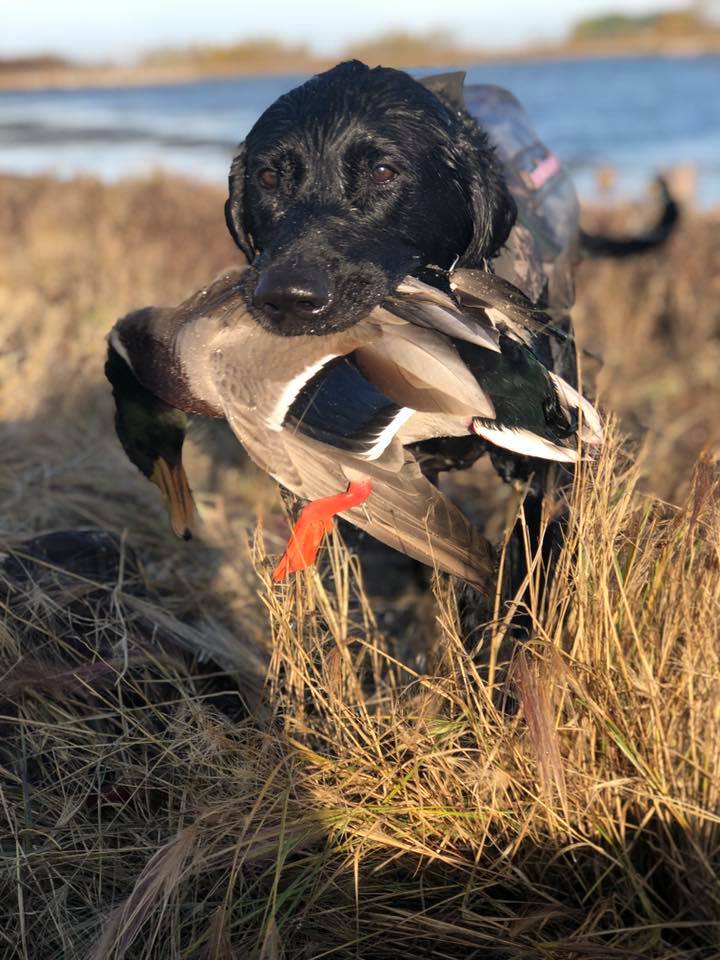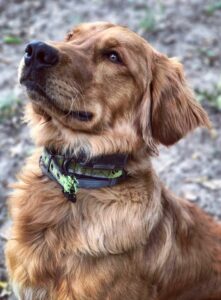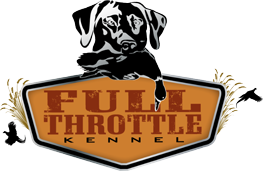Keeping your dog conditioned is a year-round task. While it is important to get your dog into top condition prior to the hunting season, it is equally important to maintain that conditioning throughout the season and into the winter and summer months. If you were going to run a marathon, you wouldn’t suddenly hop off the couch and run 26 miles. You would have to build up to that gradually. The same goes for getting your dog ready for the season. It will not only help your dog’s stamina – allowing it to last longer in the field – it can help prevent injuries as well.

Keeping your dog at a healthy weight is your responsibility as a dog owner, and doing so will allow it to perform at its best during hunts and during all other activities. It’s best to confirm with your veterinarian the recommended weight for your dog and to keep it around that weight.
There are lots of ways to keep your dog in shape for the hunting season. It’s just a matter of finding what works best for you and your companion.
Since I have a kennel full of dogs to exercise, I mainly use the roading method. This is in addition to the exercise they get during training sessions. The dogs are hooked up to harnesses that come off the bars on the four-wheeler. This allows for the dogs to cover a lot of distance.
Leash walking is another great option. Whether you’re walking or jogging with your dog, try to keep him at a steady trot. Start slowly with 10 minutes and go up a couple each week until you get to about 45 minutes. This method is a win-win because it allows you to get your exercise in, too!

In a perfect world, you could condition your dog two to three times per week. During the hot summer months, 45 minutes is not always obtainable, and you have to use common sense when conditioning not to overwork your dog.
Depending on the weather, swimming your dog is a great way to get him exercised. If you have access to a water source big enough to put a kayak in, you can kayak alongside the dog. Most dogs love water, so this will be an exciting thing for the dog to do.
Sometimes those cold days strike in the midwinter, and it’s too chilly to get the dog outside for exercise. In this case, walking your dog on a treadmill works great. Similar to walking outside, you can add on a few minutes to build up the endurance.
On the other hand, dogs do not always tell their owners when they are overdoing it, so sometimes they will hunt until they can’t anymore. No matter how good of shape a dog is in, it can sometimes become overworked while hunting.
This is especially important to keep in mind during those hot days. Even a warm fall day can cause a dog to overheat or become exhausted. There are a few signs you can look for in your dog while hunting: excessive panting, lying down or wobbly legs.
If this tends to happen a lot during a long hunt, you can start carrying some kibble or small milk bones and feed them to your dog along the way. Also, be sure to stop for plenty of water breaks. You can stick a water bottle in your hunting vest for quick drinks along the way.
FTK Pro-Tips
Read exclusive training tips and articles writted by Jessie Richards at Full Throttle Kennel.
Jessie Richards owns and operates Full Throttle Kennel, in Campbellsport, Wisconsin. She specializes in training all breeds of retrievers for hunting and AKC hunt tests, as well as guides upland hunters and takes time in October for waterfowl hunting in Saskatchewan.

